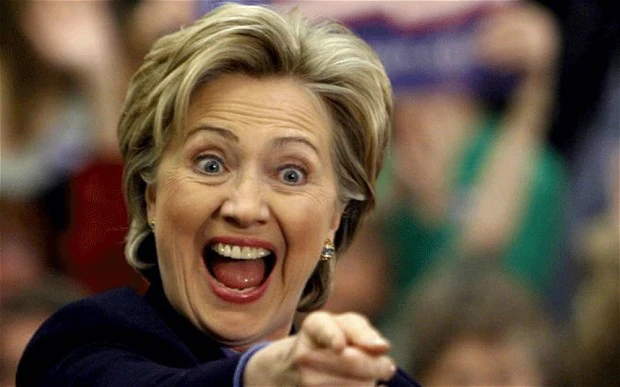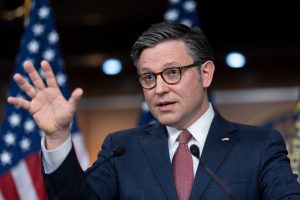NOTE: VIDEO INSIDE THE ARTICLE
A newly declassified congressional report has erupted into the political arena, reigniting long-standing questions about the truthfulness, transparency, and strategic decisions made during the 2016 presidential race. According to the document, U.S. intelligence officials serving under former President Barack Obama were aware of extraordinarily sensitive allegations about the Democratic nominee’s physical and mental health—claims originally sourced from Russian operatives who had accessed internal Democratic National Committee (DNC) communications. Yet, despite the explosive nature of this intelligence, none of it appeared in the 2017 Intelligence Community Assessment (ICA), the widely cited report that concluded Russia interfered in the election with a clear preference for Donald Trump.
The newly unsealed material, declassified by Director of National Intelligence Tulsi Gabbard and dated September 18, 2020, offers a dramatically different angle on the 2016 interference narrative. At its core is a question many political observers are now asking: if Russia possessed what the committee describes as deeply damaging medical allegations about the Democratic candidate, why did Moscow choose not to release them during the final, decisive stretch of the campaign? And perhaps more importantly, why did U.S. intelligence agencies decline to include any reference to this intelligence when presenting their official evaluation of Russia’s alleged motives?
The report states that Russia’s Foreign Intelligence Service (SVR) gained access to internal DNC documents that described the unnamed candidate as being on a daily regimen of “heavy tranquilizers” due to escalating “psycho-emotional problems.” The same internal communications detailed a range of chronic medical conditions: type 2 diabetes, ischemic heart disease, COPD, and deep vein thrombosis. According to the committee, U.S. intelligence officials were aware of these claims at the time.
Despite this, the 2017 ICA didn’t mention any of it. Instead, the assessment focused exclusively on Russia’s release of stolen emails, its public messaging efforts, and its perceived hostility toward the Democratic candidate. The newly declassified report argues that the ICA’s high-confidence conclusion—that Russian President Vladimir Putin developed a preference for Trump—was based on selective interpretation rather than a complete presentation of the intelligence picture. It claims that senior intelligence officials “did not adhere to the tenets” of the analytical standards required by the Intelligence Community Directive, particularly the requirement to consider and present alternative explanations.
For the first half of the report, the Democratic nominee’s name does not appear. The narrative focuses purely on the intelligence itself, on the omissions, and on the discrepancy between what intelligence existed and what was publicly presented. Only later—after building the context—does the report identify the candidate: Hillary Clinton.
This timing, according to congressional investigators, reinforces their argument that the original ICA had already shaped public understanding by establishing a singular narrative—one that did not account for the fact that Russia reportedly possessed far more damaging material about Clinton than anything it released. If Moscow’s goal was truly to harm her and assist Trump, the committee argues, why didn’t Putin order the publication of the alleged medical intelligence at the most politically advantageous moment?
The report also references another troubling detail: a DNC communication allegedly intercepted by Russian operatives describing a strategy approved by Clinton to tie Trump to Russian hackers in order to shift public focus away from her private email server controversy. Like the medical allegations, this information was not included in the 2017 assessment.
The analysis, prepared under former Representative Devin Nunes, accuses Obama-era officials of selectively highlighting intelligence that supported a collusion narrative while downplaying or ignoring anything that complicated it. The committee argues that the public was given an incomplete picture—and that this incomplete picture shaped years of political debate, investigations, and media coverage.
Clinton’s health had already become a controversial issue during the 2016 campaign. Videos of her stumbling at a 9/11 memorial event circulated rapidly online, prompting her campaign to announce she had been diagnosed with pneumonia. That diagnosis had been withheld from the public until after the incident, fueling speculation and criticism. Earlier health events—including a 2012 concussion that resulted in a blood clot—had already drawn scrutiny, though her campaign maintained that she was in good health.
Throughout the campaign, Clinton’s team insisted that any concerns about her stamina or medical fitness were unfounded conspiracy theories pushed by her political opponents. To them, the speculation was a misogynistic tactic, a coordinated effort to undermine a female candidate’s credibility by questioning her physical strength. But according to the newly released congressional report, U.S. intelligence agencies possessed their own assessments based on foreign intercepts that raised questions the public never heard about.
Critics of the original ICA say this omission fundamentally alters how the 2016 interference should be understood. If Russia indeed had access to internal documents containing damaging medical claims but chose not to use them, it challenges the idea that Moscow’s actions were primarily motivated by a desire to help Trump. As conservative commentator Charlie Kirk noted on social media, “If Russia was really going all-in to support Trump, it would have leaked this information in October 2016 when her poll numbers were slipping.”
Supporters of the original ICA counter that intelligence sourced from foreign adversaries is not automatically reliable and that including unverified medical claims about a presidential candidate would have been irresponsible. They argue that the ICA’s purpose was to assess Russia’s actions, not to lend legitimacy to unconfirmed allegations. Whether or not these explanations will satisfy skeptics remains unclear.
What is clear is that the political implications of the newly declassified report are vast. It revives a long-dormant debate about what Obama-era intelligence officials knew, what they chose to disclose, and how public perceptions of the 2016 election were shaped by selective transparency. It also challenges the widely accepted narrative that Russia intervened solely to harm Clinton and bolster Trump.
Instead, the emerging picture is far more complex. Russia may have had its own reasons for holding back certain material. Intelligence agencies may have chosen to withhold information they deemed unreliable or too politically sensitive. The campaign teams, media outlets, and the public were left navigating a narrative built on incomplete data—data that, according to the newly declassified report, painted only one part of the picture.
Even nearly a decade later, 2016 remains one of the most contested and polarizing elections in American history. The newly declassified findings add yet another layer of complexity, raising questions about selective intelligence disclosures, political motivations, and the long-term consequences of withholding information that could have changed public understanding of the race.
As the debate continues, one thing is certain: the full story of 2016 is still not settled. And with these new revelations, it may only now be entering its most consequential phase.
PLAY:

Sarah Mitchell is a bestselling novelist recognized for her insightful and emotionally resonant stories that explore the complexities of human relationships. Originally from Denver, Colorado, Sarah grew up in a family of teachers who nurtured her curiosity and love for storytelling. She studied psychology at Stanford University, where she became fascinated by the intricacies of human behavior—an interest that would later shape her writing career. Sarah’s novels are praised for their nuanced characters, intricate plots, and ability to capture the subtle tensions that define love, friendship, and family ties. Her breakthrough novel, The Spaces Between Us, became an instant bestseller, lauded for its honest portrayal of strained family relationships and the fragile bonds that hold people together. Since then, she has published several works that continue to captivate audiences around the world. Outside of her writing career, Sarah is passionate about mental health advocacy and often partners with organizations to promote awareness and support for those struggling with emotional well-being. Her personal life is quieter—she enjoys hiking in the Colorado mountains, practicing yoga, and spending time with close friends. With each new book, Sarah Mitchell cements her reputation as a writer who illuminates the beauty and struggles of human connection.









